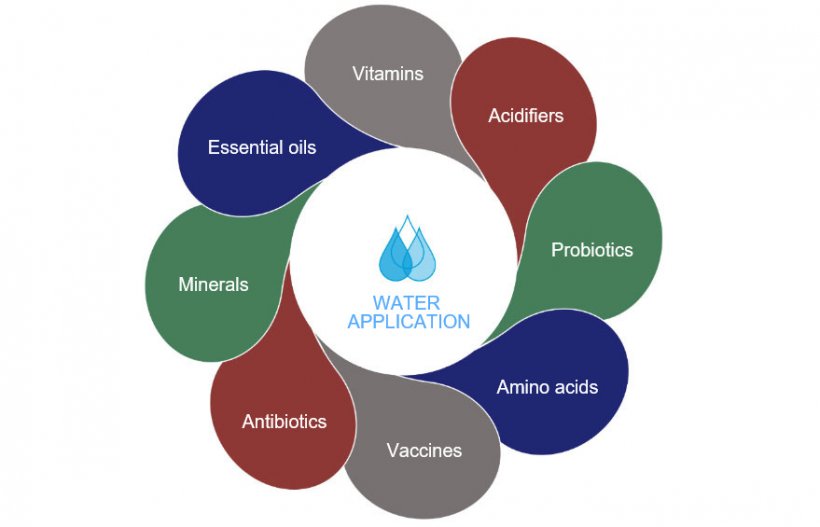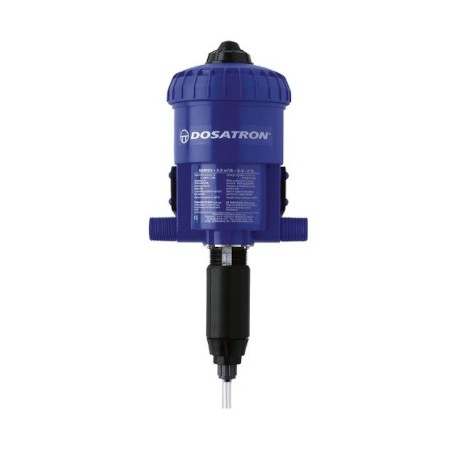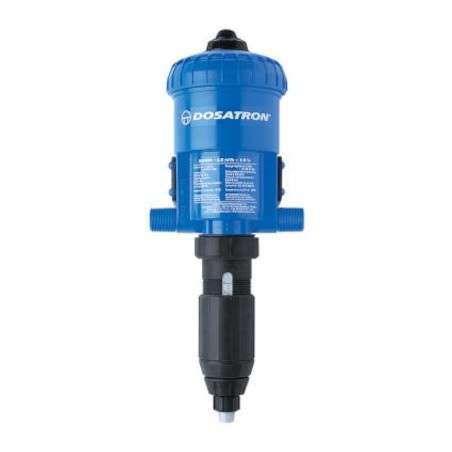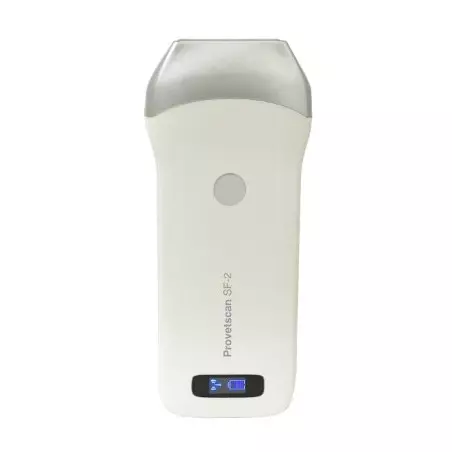In every animal´s life cycle, there are periods of increased nutrient requirements. A support in phases of rapid growth, disease, veterinary treatment or during vaccinations proves advantageous for every animal. Moreover, in certain stressful phases such as heat, transporting, or diet changes, the feed intake is low. Additional supply with nutrients via drinking water compensates the gap and offers a quick support.
With appropriate product selection and correct application supportive effects on intestinal health and immune defense are possible. Especially the correct cleaning and disinfection of the drinking water pipes is important - both in the service period and in the occupied barn.

Benefits of water application
Water is the most relevant feed for animals and is consumed a lot with a look to the pig´s lifetime. Water quantity and quality needs to be high to assure the wellbeing of our livestock. Administering substances via drinking water is becoming more and more relevant. While it is already common practice in most countries for poultry livestock, it is gaining importance also for swine and cattle. Substances such as medication, prescribed by a veterinarian, are by far not the only ones applied via water. A wide range of nutritive additives, such as vitamins, amino acids, minerals, organic acids, probiotics and even essential oils can be administered with the water (Fig. 1).

This bears a range of benefits:
- The use of additives in the water allows for full control over their use through the farm manager. The type, dosage, and duration can be adjusted to best meet the requirements of the animals.
- The application takes place quickly and the additives are available to the animals almost immediately. Supplementation via feed takes longer, for example it must first be ordered at the feed mill, manufactured and delivered. This time cannot always be afforded.
- It is well known that sick animals will usually lower or stop feed intake altogether before they will stop drinking, medication can still be administered to sick animals via water.
Even though the drinking water application has a variety of advantages, there are also some things that need to be considered:
- A good watering system needs to be well thought-through
- Dosing and cleaning devices need to be invested in
- Frequency and quality of supplements influence the risk of biofilm development
- Additives may clog nipple drinkers
In order to be able to apply products effectively via drinking water, they have to be developed technically flawlessly. Good solubility should be ensured both with the powder and with the liquid. Water-soluble powder products should be homogeneous mixtures which have an excellent flowability and generate very little dust. Liquid products with fat-soluble ingredients or essential oils are used in form of an emulsion, that could be solved without any residue.
Vitamin combination are common practice
Vitamin A, D3 and E application via drinking water is a common combination to support animals during high demand. The following trial was conducted in sows around weaning. 41 sows (similar body condition, parity, back-fat thickness) were randomly divided into two groups. In the trial group, each sow received 10ml of a vitamin A, D3, E combination via drinking water from 1 day before until 2 days after weaning (4 days in total). The results (Fig. 2) showed that the supplementation of vitamins shortened the weaning-to-estrus-interval (WTEI) remarkably. Almost 50% of the sows returned to estrus within four days after weaning in the trial group.

Quick support especially for gut health and respiratory tract
With a look to antibiotic use in pigs in Europe, 31% are applied because of digestive disorders, 31% because of respiratory problems and 17% because of Streptococcis suis infection (De Briyne et al., 2014). In times of diseases the feed intake will drop down, however the pigs maintain their water intake. The water application has a great importance especially at this time. Intestinal flora stabilizing additives like probiotics, in combination with vitamins and trace minerals or acid products could be an option to reduce the pressure or also as a preventive tool. Essential oils like peppermint, eucalyptus or menthol are focused to the respiratory tract and will support the animal. Also the support of healthy piglets is of interest and basic dosages foster the pigs in all life stages.
Supplementation via water offers the farmer a high flexibility and the chance to react quickly in times of higher demand. The product range for water application is versatile, it is important to find out which product has the targeted mode of action to solve the specific problem or to support in a good way.








